
Renewable Energy Solutions
- Developing and implementing renewable energy projects such as solar, wind, hydroelectric, and geothermal power generation.
- Designing innovative energy storage solutions to overcome intermittency challenges and enhance grid stability.
- Creating microgrid systems for decentralized energy production and distribution, particularly in remote or underserved areas.
Energy Efficiency Technologies
- Designing energy-efficient appliances, HVAC (heating, ventilation, and air conditioning) systems, and building materials for residential, commercial, and industrial applications.
- Developing smart energy management systems and IoT-enabled devices to optimize energy usage and reduce wastage.
- Providing energy auditing services and retrofitting solutions to improve the efficiency of existing buildings and infrastructure.


Circular Economy Initiatives
- Promoting circular economy principles by designing products for durability, reparability, and recyclability.
- Developing closed-loop supply chains and waste-to-resource conversion technologies to minimize waste generation and maximize resource recovery.
- Implementing product lifecycle management (PLM) systems to track materials, components, and end-of-life disposal options.
Sustainable Transportation Solutions
- Developing electric vehicles (EVs), hydrogen fuel cell vehicles, and other alternative fuel vehicles to reduce greenhouse gas emissions and air pollution.
- Designing urban mobility solutions such as bike-sharing programs, carpooling platforms, and ride-hailing services to promote sustainable transportation options.
- Creating smart transportation systems and traffic management technologies to optimize traffic flow and reduce congestion.

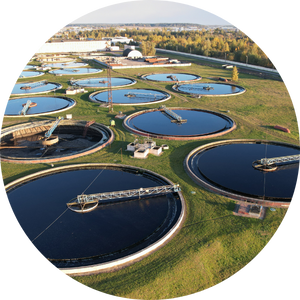
Water Management Technologies
- Developing advanced water treatment and desalination technologies to provide clean drinking water and address water scarcity challenges.
- Designing water-efficient irrigation systems, drought-resistant crops, and precision agriculture techniques to optimize water usage in agriculture.
- Implementing stormwater management solutions and green infrastructure projects to mitigate flood risks and improve water quality.
Waste Reduction and Recycling Innovations
- Creating innovative packaging materials, biodegradable plastics, and compostable products to reduce waste generation and plastic pollution.
- Developing waste-to-energy technologies, anaerobic digestion systems, and landfill diversion strategies to manage organic waste and generate renewable energy.
- Establishing extended producer responsibility (EPR) programs and take-back schemes to promote product stewardship and recycling.
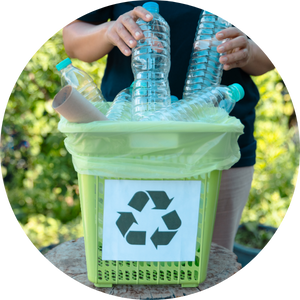

Carbon Capture and Sequestration
- Developing carbon capture, utilization, and storage (CCUS) technologies to capture CO2 emissions from industrial processes and power plants.
- Designing nature-based solutions such as afforestation, reforestation, and ecosystem restoration projects to enhance carbon sequestration and biodiversity conservation.
- Implementing carbon offset programs and emissions trading schemes to incentivize investments in low-carbon technologies and offset unavoidable emissions.
Sustainable Agriculture and Food Systems
- Promoting regenerative agriculture practices, organic farming methods, and agroecological approaches to enhance soil health, biodiversity, and ecosystem resilience.
- Developing precision agriculture technologies, sensor-based monitoring systems, and data analytics platforms to optimize resource use and improve crop yields.
- Supporting local food networks, urban farming initiatives, and community-supported agriculture (CSA) programs to promote food security, nutrition, and social equity.
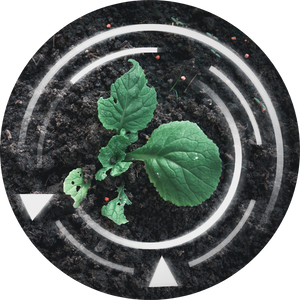

Corporate Sustainability Strategies
- Assisting companies in developing sustainability policies, goals, and action plans aligned with international standards such as the UN Sustainable Development Goals (SDGs) and the Paris Agreement.
- Conducting sustainability assessments, lifecycle analyses, and carbon footprint assessments to measure and manage environmental impacts across the value chain.
- Providing sustainability reporting services and ESG (Environmental, Social, and Governance) disclosure frameworks to enhance transparency and accountability.
Education, Awareness, and Advocacy
- Raising awareness about sustainability issues and promoting behavior change through education, outreach, and engagement initiatives.
- Providing sustainability training, workshops, and capacity-building programs for businesses, governments, and community organizations.
- Advocating for policy reforms, incentives, and regulatory frameworks that support sustainability goals and accelerate the transition to a low-carbon, resource-efficient economy.

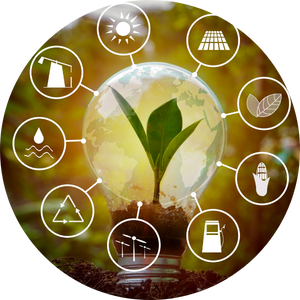
Renewable Energy Microgrids
- Designing and deploying renewable energy microgrids to provide resilient and decentralized power generation for communities, campuses, and remote areas.
- Incorporating energy storage technologies, demand response strategies, and grid-edge intelligence to optimize energy distribution and consumption.
Climate Resilience and Adaptation
- Developing climate resilience solutions to mitigate the impacts of extreme weather events, sea-level rise, and other climate-related hazards.
- Designing green infrastructure projects such as flood barriers, green roofs, and permeable pavements to manage stormwater runoff and reduce urban heat island effects.
- Implementing nature-based adaptation strategies such as coastal restoration, wetland conservation, and ecosystem-based approaches to enhance resilience and biodiversity.


Sustainable Tourism and Hospitality
- Promoting sustainable tourism practices, eco-friendly accommodations, and responsible travel experiences to minimize environmental impact and support local communities.
- Designing eco-tourism attractions, nature reserves, and cultural heritage sites to preserve natural and cultural resources while providing economic benefits to host regions.
- Implementing certification programs, eco-labeling schemes, and sustainable tourism standards to guide travelers in making environmentally and socially responsible choices.
Social Impact Investing
- Facilitating social impact investing initiatives and impact investing funds to finance projects with positive social, environmental, and financial returns.
- Supporting social enterprises, community development projects, and inclusive business models that address social challenges such as poverty, inequality, and access to basic services.
- Partnering with impact investors, philanthropic organizations, and development finance institutions to mobilize capital for sustainable development projects in emerging markets and underserved communities.
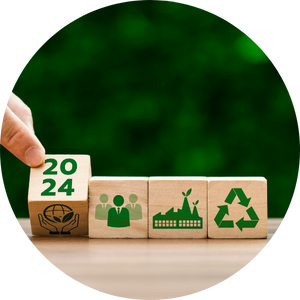

Green Building Materials and Construction Techniques
- Developing sustainable building materials such as recycled concrete, bamboo, and engineered wood products to reduce embodied carbon and environmental footprint.
- Designing passive building techniques, energy-efficient design strategies, and green building certifications (e.g., LEED, Passive House) to promote energy savings and indoor environmental quality.
- Implementing modular construction methods, prefabricated building components, and digital fabrication technologies to enhance construction productivity and reduce construction waste.
Ocean Conservation and Marine Protection
- Supporting marine conservation initiatives, marine protected areas (MPAs), and sustainable fisheries management practices to preserve marine biodiversity and ecosystem services.
- Developing technologies for ocean monitoring, marine spatial planning, and marine debris cleanup to address plastic pollution, overfishing, and habitat degradation.
- Promoting sustainable seafood sourcing, aquaculture innovation, and responsible seafood certification programs to promote sustainable fishing practices and seafood supply chains.

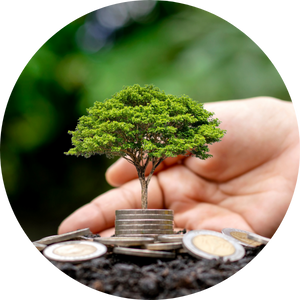
Green Finance and Sustainable Investment Products
- Creating green finance products such as green bonds, green loans, and sustainability-linked bonds to finance renewable energy projects, energy efficiency upgrades, and sustainable infrastructure.
- Developing impact measurement and reporting frameworks, environmental risk assessment tools, and green finance guidelines to guide investors in making sustainable investment decisions.
- Facilitating collaboration between financial institutions, asset managers, and sustainability experts to mainstream sustainable finance principles and integrate environmental, social, and governance (ESG) factors into investment strategies.
Regenerative Agriculture and Soil Health
- Promoting regenerative agriculture practices such as cover cropping, crop rotation, and no-till farming to improve soil health, sequester carbon, and enhance ecosystem resilience.
- Implementing soil carbon sequestration projects, biochar applications, and agroforestry systems to mitigate climate change and enhance agricultural productivity.
- Providing training, technical assistance, and financial incentives to farmers and landowners to adopt regenerative agriculture practices and transition to more sustainable land management approaches.
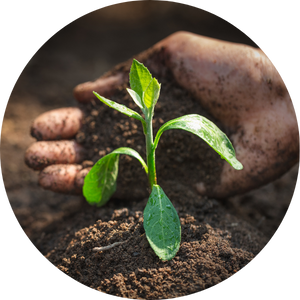

Sustainable Supply Chain Management
- Collaborating with supply chain partners, suppliers, and vendors to implement sustainable sourcing practices, ethical labor standards, and responsible procurement policies.
- Conducting supply chain audits, supplier assessments, and material traceability initiatives to ensure compliance with sustainability criteria and reduce environmental and social risks.
- Developing supply chain transparency tools, blockchain-based supply chain platforms, and certification programs to promote transparency, accountability, and trust across global supply chains.
Biodiversity Conservation and Habitat Restoration
- Supporting biodiversity conservation efforts, protected area management, and species recovery programs to safeguard endangered species and ecosystems.
- Implementing habitat restoration projects, reforestation initiatives, and ecological restoration techniques to enhance ecosystem services, biodiversity, and resilience.
- Engaging local communities, indigenous peoples, and stakeholders in conservation planning, stewardship activities, and sustainable land use practices to promote coexistence and shared benefits from natural resources.

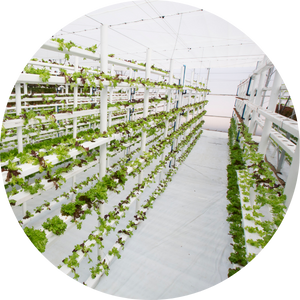
Urban Agriculture and Vertical Farming
- Promoting urban agriculture initiatives, community gardens, and rooftop farms to increase local food production, improve food security, and reduce food miles.
- Designing vertical farming systems, hydroponic setups, and aeroponic technologies to optimize space utilization and water efficiency in urban environments.
- Implementing indoor farming solutions, controlled environment agriculture (CEA), and aquaponics systems to produce fresh, nutritious food year-round while minimizing environmental impact.
Sustainable Fashion and Textiles
- Supporting sustainable fashion brands, eco-friendly apparel, and circular fashion initiatives to promote ethical labor practices, reduce textile waste, and minimize environmental impact.
- Developing alternative materials such as recycled fibers, organic cotton, and biodegradable textiles to address the environmental footprint of the fashion industry.
- Implementing traceability solutions, blockchain-based supply chain platforms, and garment recycling programs to promote transparency and circularity in the fashion supply chain.
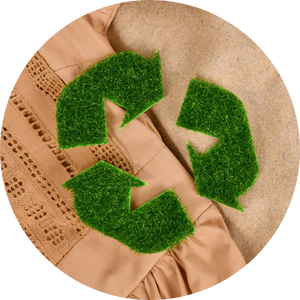

Green Chemistry and Sustainable Materials
- Advancing green chemistry research, biomimicry principles, and bio-based materials to develop sustainable alternatives to conventional chemicals and materials.
- Designing eco-friendly packaging solutions, compostable plastics, and biodegradable polymers to reduce plastic pollution and environmental harm.
- Implementing life cycle assessments (LCAs), eco-design methodologies, and cradle-to-cradle approaches to evaluate and optimize the environmental performance of products and materials.
Nature-Based Solutions for Climate Adaptation
- Promoting nature-based solutions such as green infrastructure, reforestation, and wetland restoration to enhance climate resilience, mitigate natural hazards, and provide multiple benefits to communities.
- Designing resilient landscapes, green roofs, and urban parks to absorb stormwater, reduce heat island effects, and enhance biodiversity in cities.
- Implementing ecosystem-based adaptation strategies, such as coastal restoration, mangrove protection, and coral reef conservation, to buffer communities from the impacts of climate change and sea-level rise.
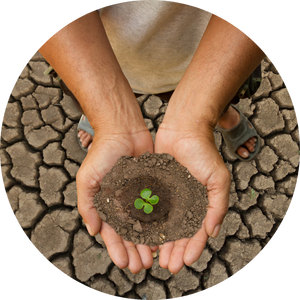
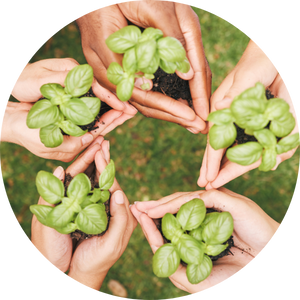
Social Innovation and Community Development
- Supporting social enterprises, impact-driven startups, and community-based organizations that address social and environmental challenges through innovative business models and solutions.
- Promoting inclusive business practices, fair trade principles, and social entrepreneurship to create economic opportunities, empower marginalized communities, and promote social equity.
- Facilitating cross-sector collaborations, multi-stakeholder partnerships, and collective impact initiatives to address complex social and environmental issues at the local, regional, and global levels.
Green Urban Planning and Design
- Designing sustainable cities, eco-districts, and green buildings that prioritize walkability, transit-oriented development, and green spaces to improve livability and reduce environmental impact.
- Integrating green infrastructure, biodiversity corridors, and natural habitats into urban planning processes to enhance ecosystem services, support wildlife habitat, and promote human well-being.
- Implementing green building codes, zoning ordinances, and sustainability standards to regulate development and ensure that new infrastructure projects contribute to environmental sustainability and resilience.
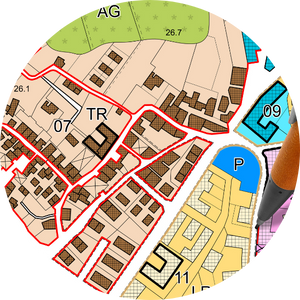

Environmental Education and Public Awareness
- Promoting environmental literacy, sustainability education, and environmental stewardship among students, educators, and the general public through outreach, curriculum development, and educational programs.
- Providing environmental education resources, experiential learning opportunities, and citizen science projects to engage communities in environmental conservation and sustainability initiatives.
- Organizing awareness campaigns, environmental festivals, and community events to raise awareness about pressing environmental issues, inspire behavior change, and mobilize collective action for sustainability.
Remote Sensing and Earth Observation Technologies
- Leveraging satellite imagery, remote sensing data, and geographic information systems (GIS) to monitor environmental changes, track deforestation, and assess ecosystem health.
- Developing Earth observation technologies, unmanned aerial vehicles (UAVs), and sensor networks for environmental monitoring, wildlife conservation, and natural resource management.
- Providing geospatial analysis services, land cover mapping, and ecological modeling tools to support environmental research, conservation planning, and decision-making processes.

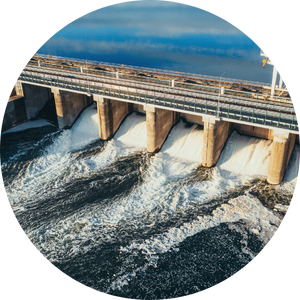
Water-Energy Nexus Solutions
- Developing integrated water-energy systems and technologies to optimize resource use, reduce energy consumption, and enhance water efficiency.
- Implementing water-saving technologies such as efficient irrigation systems, drip irrigation, and soil moisture sensors to minimize water waste in agriculture and landscaping.
- Designing energy-efficient water treatment plants, desalination facilities, and wastewater recycling systems to meet growing water demands while reducing energy intensity and environmental impact.
Sustainable Tourism Technology
- Developing sustainable tourism technologies such as mobile apps, virtual reality experiences, and gamification platforms to promote responsible travel behaviors and eco-friendly tourism practices.
- Implementing destination management systems, visitor monitoring tools, and crowd management solutions to reduce overcrowding, mitigate environmental impacts, and enhance visitor experiences in popular tourist destinations.
- Designing eco-tourism apps, nature-based tour guides, and immersive storytelling experiences to connect travelers with local culture, heritage, and environmental conservation efforts.
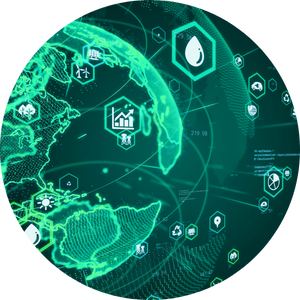

Regulatory Compliance and Environmental Governance
- Providing environmental compliance services, regulatory monitoring tools, and sustainability reporting software to help businesses and organizations meet regulatory requirements and achieve environmental certifications.
- Supporting environmental governance initiatives, stakeholder engagement processes, and multi-stakeholder dialogues to promote transparency, accountability, and public participation in environmental decision-making.
- Facilitating partnerships between government agencies, industry associations, and civil society organizations to develop and implement environmental policies, regulations, and enforcement mechanisms.
Climate Finance and Carbon Markets
- Creating climate finance mechanisms, carbon pricing frameworks, and emissions trading platforms to mobilize private capital and incentivize investments in low-carbon technologies, renewable energy projects, and climate mitigation efforts.
- Designing carbon offset projects, renewable energy certificates (RECs), and voluntary carbon markets to enable companies, governments, and individuals to offset their carbon footprints and support climate action.
- Providing advisory services, financial instruments, and risk management tools to help businesses navigate climate-related risks, transition to low-carbon business models, and seize opportunities in the emerging green economy.

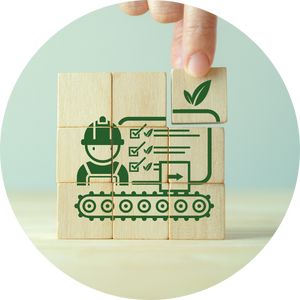
Sustainable Consumption and Production
- Promoting sustainable consumption and production practices through product design, packaging innovations, and supply chain optimization strategies that minimize waste, conserve resources, and reduce environmental impacts.
- Developing sustainable packaging solutions, reusable packaging models, and circular economy initiatives to eliminate single-use plastics, reduce packaging waste, and promote product stewardship.
- Implementing product lifecycle assessments, eco-labeling schemes, and consumer education campaigns to empower consumers to make informed purchasing decisions and support sustainable brands and products.
Climate Education and Resilience Training
- Providing climate education programs, resilience training workshops, and capacity-building initiatives to empower individuals, communities, and organizations to understand climate change impacts, adapt to changing conditions, and build climate resilience.
- Developing climate literacy resources, online learning platforms, and educational curricula for schools, universities, and lifelong learners to integrate climate science, sustainability principles, and environmental stewardship into formal and informal education settings.
- Supporting climate awareness campaigns, public outreach events, and community-based initiatives to foster climate action, behavior change, and collective responsibility for addressing climate challenges at the local, national, and global levels.


Natural Capital Accounting and Ecosystem Valuation
- Advancing natural capital accounting methodologies, ecosystem valuation techniques, and environmental economics frameworks to quantify the economic value of ecosystems, biodiversity, and ecosystem services.
- Implementing ecosystem-based management approaches, payment for ecosystem services (PES) schemes, and biodiversity offsetting programs to incentivize conservation, restoration, and sustainable use of natural resources.
- Providing decision support tools, economic analysis models, and policy recommendations to inform land use planning, development projects, and natural resource management strategies that prioritize environmental sustainability, social equity, and economic prosperity.



